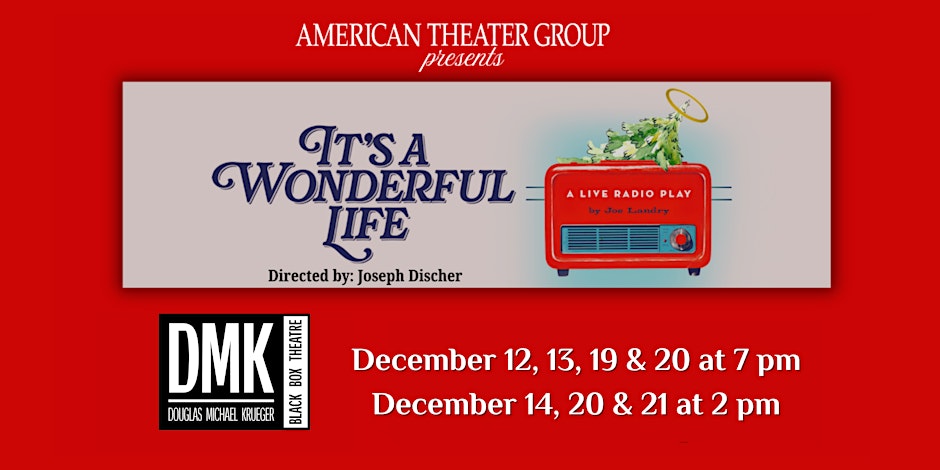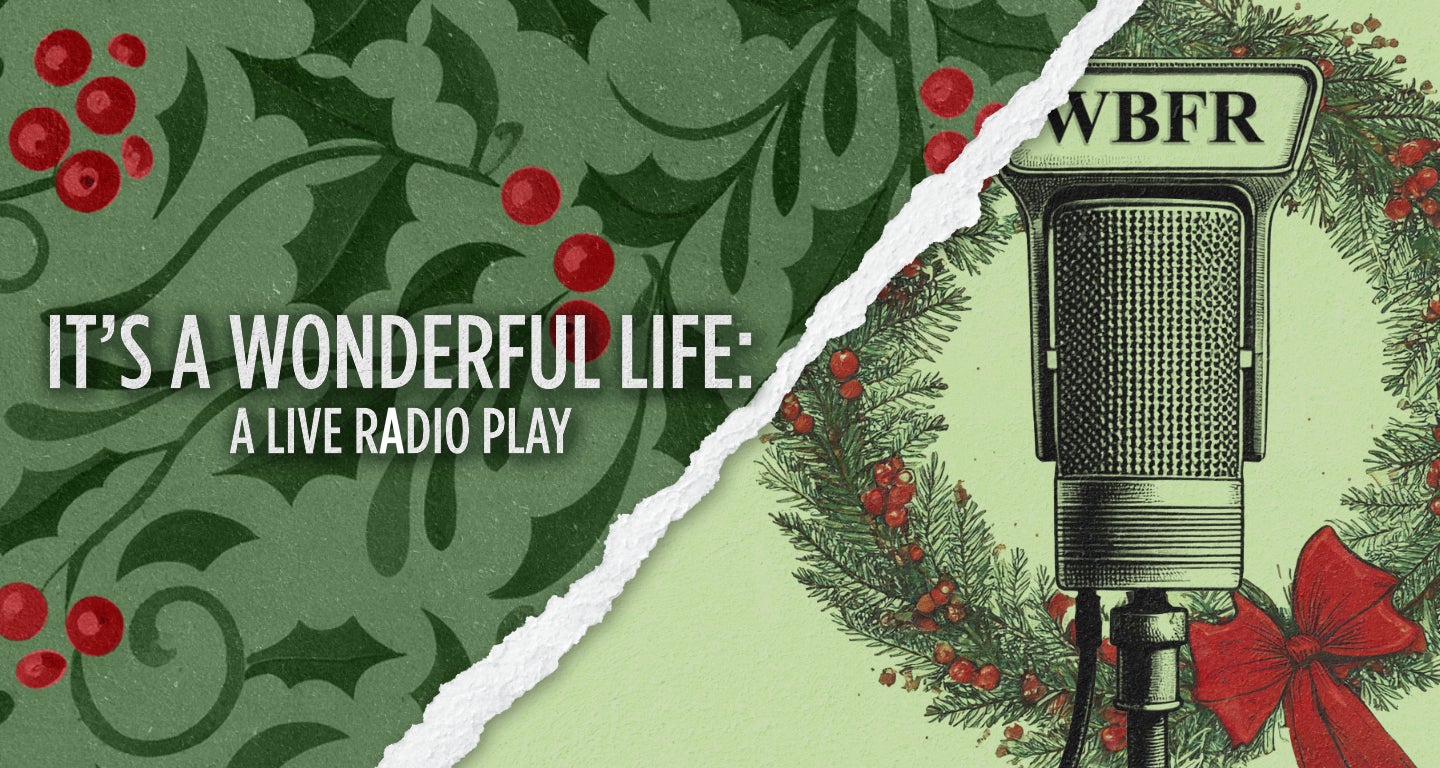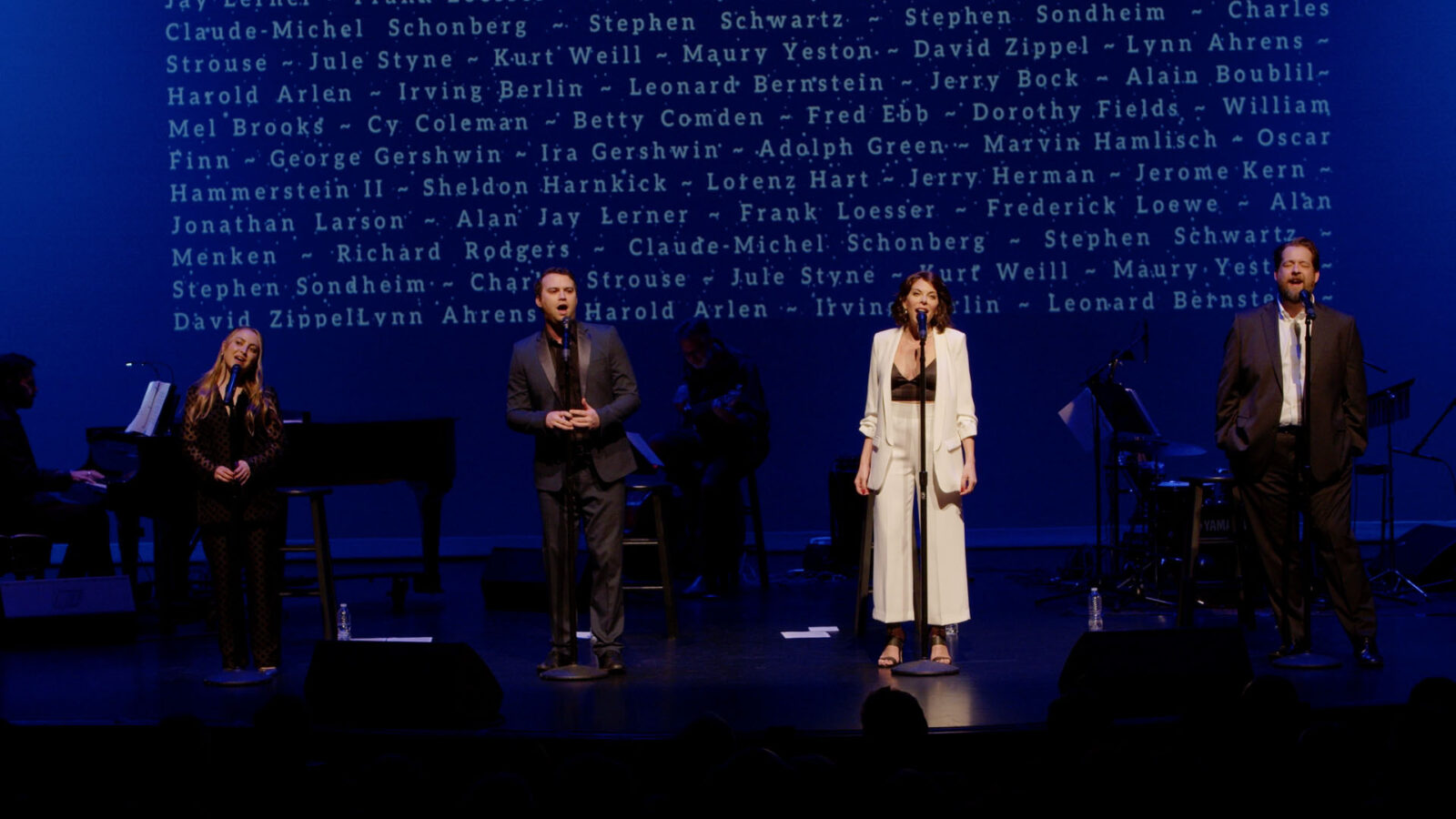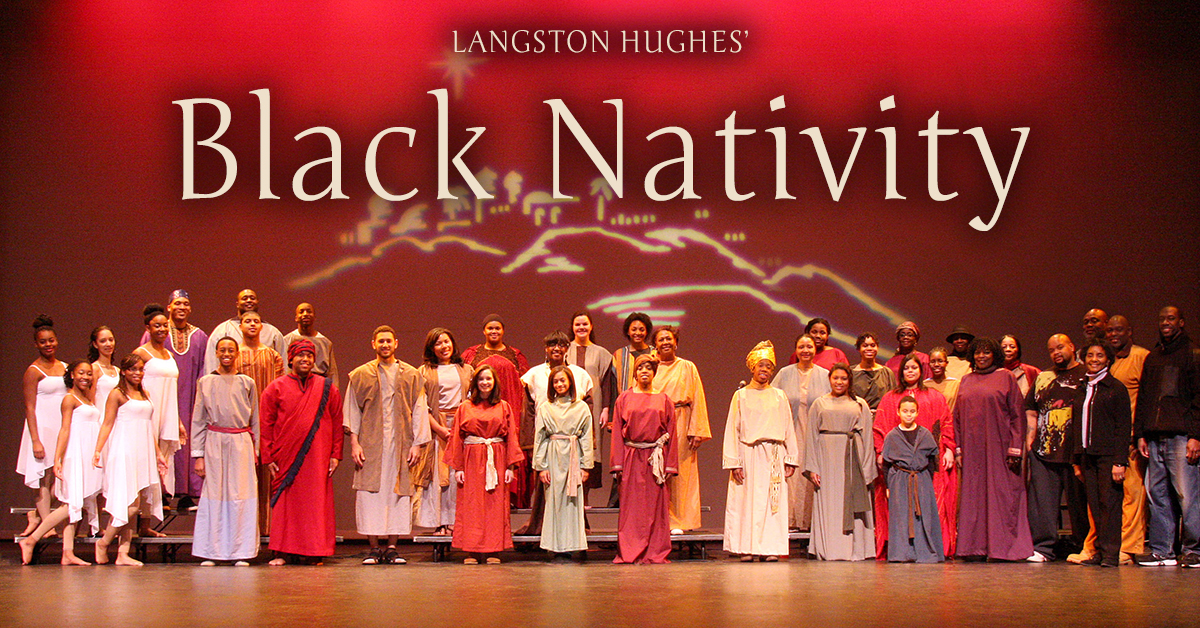By Gary Wien
originally published: 09/01/2016

In The American Soldier, a 55-minute tour de force, enhanced by an ingenious interplay of sound and lights, Douglas Taurel (Mr. Robot, Nurse Jackie, The Americans) enters into the personas of 14 veterans and their family members, telling their story of courage and sacrifice. The American Soldier exposes their flaws, and their scars, with both darkness and humor. It is not simply a play, but a journey through the American story, moments that resound with lasting meaning for both audiences old enough to remember, and those young enough to yearn for inspiration.
Taurel brings his one-man show to Mile Square Theatre in Hoboken, NJ for performances September 9th-11th. New Jersey Stage spoke with the actor about the play.
Tell me about The American Soldier. How do you take the audience through the lives of 14 different soldiers?
My show is based on actual letters and accounts that I have researched and collected from veterans and their family members. The stories and letters are collected as far back as the American Revolution all the way through our current conflicts in Iraq and Afghanistan.
I tell the story with a through line and a message I am trying to communicate and not chronologically. I play soldiers ranging from Revolution, Civil War, World War I, WWII, Vietnam, Iraq, and Afghanistan. A father in the wake of his soldier son’s suicide, a wife and son dealing with the fathers absence while he is away at war, and a grieving mother remembering her son and his story of how he died.
The play is based on actual stories and factual accounts from soldier and family-member letters. How did you come across these?
I started creating this show about 8 years ago. I would go to the NY Public Library and research books that contained letters from all of the different wars. You don’t realize how much research there is on war until you start doing the research. It’s like trying to count all the stars in space. Needless to say the research was intense and immense.
As I workshopped the play and word spread about what I was trying to create, people started sending me veteran letters they knew about, books of only veteran letters, podcasts of veterans, websites that have letters from every war to even some personal letters of family members. It became so much that I had to start telling people please don’t send me any more letters, I am drowning in letters.
What research did you do to learn more about each era?
I have always been a historian and a lover of history. I am a big reader so I would read books on war, veterans experiences from war and how wars have shaped our country. I would also watch documentaries and of course movies that were about a particular war.
Movies were great to watch because you could pick up little details that you never knew about a war or era; like it is considered bad luck to be the third soldier lighting his cigarette on a single match. This is little known fact is in my play.
What research did you do into PTSD? Have you met people with PTSD that you helped base your character around?
My play does touch on PTSD and it is the layer that everyone gravitates to, but I also touch on many aspects of war. I address subjects like “How does a son go on after losing his father?” and “How does a mother and father go on after losing a child?” However, PTSD is a key theme and the research really came from a lot of different sources.
As I read about stories of veterans dealing with PTSD in the newspapers, I started looking for more stories to read and immerse myself in. I have watched countless documentaries and listened to podcasts of veterans dealing with PTSD. A particular website that was very influential in the creating of my show was Making the Connection. They have videos of actual veterans and their family members telling their stories of how they deal with PTSD. The stories were extremely moving and heartbreaking.
There were two stories that really touched me. The first was seeing a video of an Iraq veteran who had served 3 tours in Iraq and was dealing with severe PTSD. He wouldn’t play with his son anymore and his son was extremely sad. It broke my heart for what they had both lost. His son in the video said – “My dad’s home but he really isn’t and it sucks!”
The other story that touched me was a veteran coming home from Afghanistan and not being able to find work as his PTSD meant he could not drive anymore. In order to support his family, he would go to his neighbor’s houses asking if he could do odd jobs for them so he could make a living.
PTSD is a relatively new condition, but one that soldiers of every war have probably faced. Did you see patterns of PTSD in the letters from wars of long ago?
PTSD really didn’t get recognized until the 1980’s so yes, it is relatively new by that name. However, soldiers have been experiencing it since the days of the Greeks. It is clearly talked about in the Iliad Achilles. Shakespeare clearly makes a reference to it in Henry IV part 2 when Kate keeps talking to Hotspur about why won’t he sleep anymore.
During the Revolution, men where called cowards when they would not fight anymore or thought of simply as crazy and in the Civil War they were said to have “soldiers heart”, in World War 1, they used the term “shell shocked.”
The impact of men losing their brothers in combat is the same. They all have trouble talking about it, shame from admitting they have it, have marital problems, abuse alcohol and drugs and experience employment difficulties but the one common thing that they all have is nightmares.
You are about the same age as I am. Did you know people who were in the first Gulf War?Yes. Being from Texas, you knew of a lot of people who had family members who fought in Iraq or were in the military. While it was nothing as severe as what the men in combat experienced, I was very aware of the first Gulf war as my father was a merchant marine whose ship would deliver missiles to bases in Iraq.
My sister is a Sergeant in the army, I have two nieces who have done tours in Afghanistan and Iraq, and I have a nephew who just became a marine.
I know you’ve acted all over, but what is it like bringing a new work to the Edinburgh Festival as you did with The American Soldier?As an American and a professional actor who works in Manhattan, Edinburgh has a theatrical excitement that is like no other. The festival takes over the whole city and there are hundreds and hundreds of shows to be inspire by.
The city truly becomes a massive theatrical festival and they absolutely love new shows. I was very honored with the reviews, awards and the overwhelming response I received from the audiences and UK veterans. I think it did well over there because they are dealing with the same problems we are, and perhaps worse. British society does not encourage people to talk about their problems. I had so many British veterans and family members thanking me for bringing the show and for being their voice. British audiences don’t give standing ovations like we do, you really have to earn it and I got two so I think that speaks to how they responded to the show.
Why is the story of soldiers so important to you? What makes you so passionate about this play?
I believe that we all need to understand the incredible sacrifices our veterans and their families have made for us and our freedoms. As a father and a husband, there are questions I ponder with such as: Could I move forward knowing that my son was lost because of a war? Would I be able to give my life for a brother in arms? How would I respond under horrific violence and could I recover?"
These questions I feel should be asked by everyone so that we can have a better understanding of our veterans and their families. I believe we have a duty to tell their stories and to hear their stories so that we can honor them and help them.
Do you think being the son of Hispanic parents and living in South America helped give you a better sense of what it is like to be American? Has your upbringing helped you to be the voice to those who are silent?
Yes. Great question!
I think it has helped me very much. It has taught be to feel empathy, to be grateful to be an American and to feel honored and proud that I am an American.
My father was an immigrant from Argentina who recently passed away. He was self made and self taught and every day he would tell me that this country was the greatest country in the world. He loved the United States. When I think about where I came from, being the son of immigrants and being able to get a college education at Ole Miss, to have worked with the incredibly talented and famous artists I have worked with and to be on TV, film and to grace some of New York’s most famous stages, I would say that only in American could all of this happen. Thank you Dad!
Finally, a little about yourself. Your bio says taking on huge challenges is in your DNA. You’ve been a boxer, ran marathons, climbed Mt. Kilimanjaro, and ran with the bulls in Spain. What has been some of your scariest experiences?
So many scary ones, but all of them exhilarating. My first performance of this show, the first show I have written, in front of an audience was pretty scary. However, I guess the scariest was running with the bulls in Spain. You don’t realize how big and powerful those animals are until you are right next to them. They are so incredibly beautiful, powerful, athletic, and violent at the same time.
What would you say was the most rewarding?
Most rewarding? I would say the show. Never in a million years did I ever think this show would be as as successful as it has been. To receive the positive responses from critics, to be nominated for an Amnesty International Award for theatrical excellence and to be asked to tour the show across the country has been thrilling. But the most rewarding has been receiving the personal messages and letters from veterans thanking me for my work. That has been unbelievable. I have been enriched 100 fold as a person and artist because of this show and will always be incredibly grateful for the lessons of courage I have learned from all of the veteran’s letters.
Here are some responses by people to the show.
And here are some Social Media posts by audience members.
Learn more about the American Soldier at: www.TheAmericanSoldierSoloShow.com and more about Douglas Taurel at www.DouglasTaurel.com
Gary Wien has been covering the arts since 2001 and has had work published with Jersey Arts, Upstage Magazine, Elmore Magazine, Princeton Magazine, Backstreets and other publications. He is a three-time winner of the Asbury Music Award for Top Music Journalist and the author of
Beyond the Palace (the first book on the history of rock and roll in Asbury Park) and
Are You Listening? The Top 100 Albums of 2001-2010 by New Jersey Artists. In addition, he runs New Jersey Stage and the online radio station
The Penguin Rocks. He can be contacted at
[email protected].
FEATURED EVENTS
To narrow results by date range, categories,
or region of New Jersey
click here for our advanced search.
To narrow results by date range, categories,
or region of New Jersey
click here for our advanced search.
EVENT PREVIEWS
Kean Stage presents L'Chaim - A Toast to the Jewish Legacy of Broadway
December 20, 2025
Gateway Playhouse Adds An Extra Sunday Matinee Performance of 'Scrooge The Musical' on December 21st
December 21, 2025
Middlesex County's Plays-in-the-Park presents "Joseph and the Amazing Technicolor Dreamcoat" at State Theatre
December 27-28, 2025
Count Basie Center for the Arts presents Langston Hughes' "Black Nativity" on December 28th
December 28, 2025
The Ma'ayanot H.S. Drama Society & Black Box Studios presents "Fiddler On The Roof"
December 27-30, 2025
The Players Guild of Leonia to Hold Auditions for "The Psychic" by Sam Bobrick
January 4-11, 2026
Ruth Stage presents "At Home at the Zoo"
January 15-17, 2026
Westfield Community Players presents "Time Stands Still" by Donald Margulies
January 10-24, 2026
Two River Theater's A Little Shakespeare presents "As You Like It"
January 17-25, 2026
Algonquin Arts Theatre presents "Same Time, Next Year"
January 17-25, 2026


















